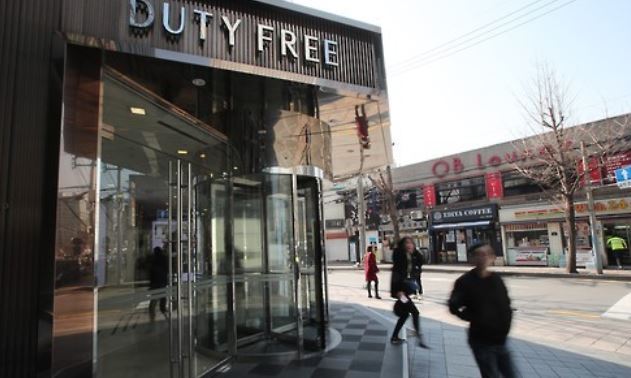Korean businesses await return of Chinese visitors to generate growth
By YonhapPublished : Oct. 31, 2017 - 16:42
The announcement Tuesday from Seoul and Beijing that they will try to put their relations back on track raised hopes among local businesses that have relied on Chinese consumers to generate growth.
Chinese tourists had fueled the growth of local industries, from retailers to duty-free shops, airlines and the food sector.
Last year, before the diplomatic crisis erupted in earnest between the two neighboring countries, 8.06 million, or 46.8 percent, of the 17.2 million foreign travelers who came to South Korea were from China. In 2015, each Chinese visitor spent on average $2,391 during their visit.
Economic shock was inevitable when China allegedly ordered its travel agencies to suspend package tours to the neighboring country in March this year, angered at South Korea's decision to host a US missile defense system known as THAAD. Officials in Seoul said the two countries, with Tuesday's announcement, will focus on future cooperation and exchanges while working past their differences over THAAD.

Such a change in tone could reverse what has been one of the hardest times for South Korean industries that had relied on doing business with China and Chinese tourists.
About 70 to 80 percent of sales at duty-free shops used to be generated by Chinese shoppers. Lotte said that 80 percent of its inner city duty-free shop sales and 70 percent of airport sales came from the Chinese. Shilla also said it was 80 percent dependent on Chinese shoppers.
After the retaliatory travel restrictions imposed by Beijing, sales created by the Chinese at Lotte fell 30 percent, resulting in a loss of 500 billion won ($446.15 million). Lotte's group-wide losses, counting foregone sales at its department stores and supermarket chains, are estimated at well over 1 trillion won.
Airline companies and travel agencies also suffered massive losses. About half of local agencies that exclusively handle Chinese package tours were shut down from lack of business, according to industry sources. A comparison of the March-August period this year to same months last year showed the number of visitors from China dropped 61.3 percent, from 6.33 million to 2.03 million.
Duty-free business operators said they will be ready with special shopping benefits when Chinese travelers return, stocking up on favorite items such as cosmetics.
"The duty-free shops were put into a near life and death situation because of the retaliation over THAAD," one operator said. "We are waiting for Chinese tourists to return as soon as possible."
Airline companies filled some of the lost business by targeting passengers from Japan and Southeast Asia. Korean Air, for instance, has cut its China routes by 442 flights since April, while flying more between Thailand, Vietnam and other Southeast Asian cities.
Asiana likewise got rid of 79 flights to and from China and replaced some with smaller aircraft.
Travel agencies are expecting a timely return of Chinese tourists so that they can connect their trips with the 2018 PyeongChang Winter Olympics, which opens in February. The games could help bring the industry out of the slump much quicker, they say.
While expecting a turnaround, these businesses readily admit that any meaningful change will likely take time. Tuesday's announcement is, in their words, an announcement that has to be backed up by actions. There is no specific mention from the Beijing side per se that it will lift travel restrictions, they note.
"Even if the THAAD retaliation is lifted, making new travel packages and getting the market back to normal will require time,"
a retail industry official said. "It will be hard for the volume of Chinese visitors to return to what it used to be that quickly. The recovery will be gradual."
Another official in the travel industry was more specific.
"We have to make whole new packages if we want to attract Chinese tourists," he said. "We have to arrange not only flights but hotels and restaurants and normalize the business networks with local agencies in China. This could take more than three months." (Yonhap)









![[Kim Seong-kon] Democracy and the future of South Korea](http://res.heraldm.com/phpwas/restmb_idxmake.php?idx=644&simg=/content/image/2024/04/16/20240416050802_0.jpg&u=)








![[KH Explains] Hyundai's full hybrid edge to pay off amid slow transition to pure EVs](http://res.heraldm.com/phpwas/restmb_idxmake.php?idx=652&simg=/content/image/2024/04/18/20240418050645_0.jpg&u=20240418181020)

![[Today’s K-pop] Zico drops snippet of collaboration with Jennie](http://res.heraldm.com/phpwas/restmb_idxmake.php?idx=642&simg=/content/image/2024/04/18/20240418050702_0.jpg&u=)